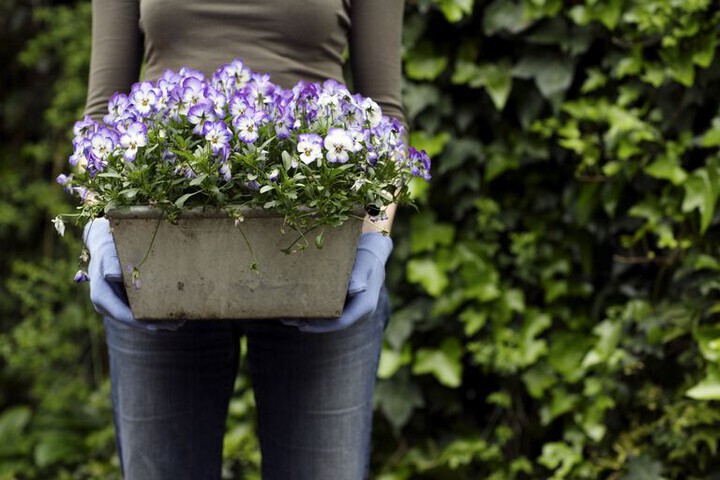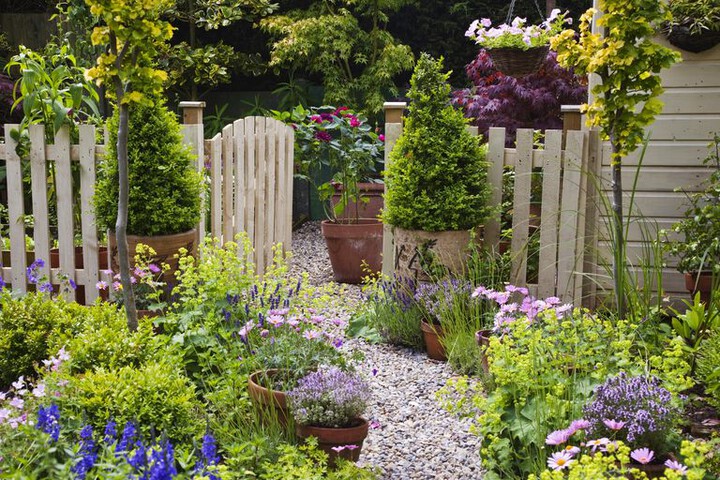It was the third week of staying at home when I wandered into the garden shed.
A city slicker who hadn’t tended so much as a succulent since I’d left my family’s home in Arkansas two decades ago, I’d recently returned to be closer to my parents, along with my husband, son, and the family dog. We were all appreciating the simple outdoor pleasures that a home with a bit of land affords—the feeling of grass beneath our bare feet, the peace of a few minutes spent rocking in a hammock. Most of all, we loved the gardens.
The gardens were my grandma Tonnie’s doing. She’d lived in the back house on my parents’ property for many years and spent most of the daylight hours in spring and summer transforming the land from an unremarkable field to a verdant oasis. Japanese maples, crepe myrtles, and black gum trees flanked a winding stone path lined with violets. Bird houses hung from the red cedars, which surrounded an inviting little bench where you could sit and take it all in.
Many family events have been held here over the years. For my mother’s 60th birthday party we hung dozens of paper lanterns in the trees. My aunt walked down the garden path to exchange wedding vows beneath the shade of the sugar maple. And when my grandmother passed away, a day shy of her 97th birthday, we gathered in her garden to celebrate the long, mostly healthy life she’d lived, which we believed gardening had played no small part in.

Now it was spring once again and, as the current occupant of the back house, I decided to see if any of my grandmother’s talent had been passed along to me. The equipment in the garden shed hung neatly on hooks along the wall, organizing being another of grandma’s favorite pastimes. I chose a small shovel thing-y (I’ve been informed it’s called a trowel), a metal stick with a sharp fork at the end (a weeder), and a pair of gloves and set off for the side of the house.
I would begin in the weeds, or so I thought. Of course, the thing even beginning gardeners quickly realize is that you will both begin and finish with the weeds because they grow in endless supply, especially in the South where storms sweep through bringing buckets of rain to help the dandelions and chickweed along.
I didn’t mind it though. I found the repetitive nature of weeding allowed my mind to wander in a way it never does in front of a screen. Rather than listen to music or a podcast, I listened for the breeze in the trees, the twitter of birds, the rustle of the hedges as my dog emerged from beneath the porch, exhausted and happy from spending his days in the dirt. Time slowed down and my imagination expanded, the way it had so many years ago when I was younger and dreaming of what I might see and do when I left home. Now this quiet, familiar garden felt like the perfect destination.
Gardening was also cathartic, especially once I discovered the electric hedge trimmer. The quick progress of cutting back the growth along the garden paths was immensely satisfying, and also a little addictive. I did have to trim the honeysuckle and redbuds along the driveway, but did I have to cut them back several feet? No. But I could and I did and it felt like a much needed moment of control during a time where we could control very little.

Eventually the satisfaction I’d found pruning and weeding, gave way to the desire to add to the gardens and so my son and I donned our face masks and drove to our town’s outdoor garden center. The staff, socially distanced, pointed to the rows of potted perennials where we picked out garden pinks and primroses.
We brought them back to my family’s home and planted them in the smallest garden, the one created in memory of my grandparents, which sits in a sunny spot next to the back house. I still knew so little about flowers and I had no idea if we’d chosen types hearty enough to last the summer. But they were pretty and adding the cheerful pink petals to the mix—even if they’d be gone soon—made us proud.
The landscape architect William Kent once said people should “garden as though you will live forever.” Of course none of us can, but as I watched my son wander away across the gardens my grandmother had left us, I knew what he meant.